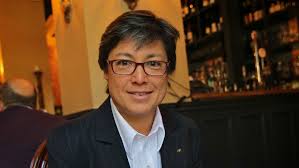By Andrew Warshaw
October 30 – FIFA’s reform guru Francois Carrard is being urged to address the question of gender imbalance as an immediate priority as part of the measures to lift football’s world governing body out of the dark ages.
A powerful blueprint for change has been submitted to Carrard ahead of FIFA’s last executive committee meeting of the year in early December when his proposals are due to be rubber-stamped before being approved by the full membership at the February 26 electoral congress.
While much has been made of the likes of terms limits and integrity checks, the issue of more female involvement in the game has been widely ignored and the proposals recommended to Carrard include all six confederations having at least one woman each on their executive committees.
But they go much further with a number of so far unticked boxes.
The eight-page blueprint, entitled FIFA, Football and Women: Why Reform must Specify Inclusion and Investment, says FIFA must address what it describes as “perhaps the most profound, long-standing and systemic injustice in sport – the exclusion of women and girls from the world’s most popular game.”
It makes the point that just two of FIFA’s 209 federation presidents are women – less than 1% of the voting population in FIFA Congress.
The paper was submitted by Australian co-opted exco member Moya Dodd (pictured), as head of FIFA’s women’s task force, and presented by Oceania’s Sarai Bareman, the only woman on Carrard’s Reform Committee. A former Australian international, Dodd has long banged the drum for more greater equality, not least as a result of the popularity of the women’s World Cup.
Dodd cites extensively from management and academic literature about the benefits of gender diversity, including by reducing the kind of corruption that has seen a string of exco members either quit in disgrace of get banned over the past few years.
“Women comprise only eight per cent of exco members globally. At confederation level, only eight women hold exco positions, and some confederations have none,” says the submission to Carrard.
“Within FIFA itself, there are three women out of 26 exco members; the standing committees contain hardly any women (outside the women’s football committees); and only one director is female.
“Globally, just two of 209 member association presidents are women – less than one per cent of the voting population in FIFA Congress – and in the majority of confederations there are none at all.
“The fact is that 111 years after FIFA was formed, women are still vastly under-represented at every level of the pyramid in the world’s most-loved game. These patterns are sadly resistant to progress. Indeed, the FAs in the most established confederations, UEFA and CONMEBOL, have the least women on their boards.”
Ideally, says Dodd, there should be “an immediate 20pc presence of women on the FIFA executive committee, to be mirrored within a reasonable time at all levels (confederations, member associations, clubs, etc) with a longer-term target of 30 percent gender balance.”
Although FIFA, in its ultra-conservative way, may feel her proposals go too far and may not take into account the different cultures across its six confederations, Dodd’s paper pulls no punches when discussing the consequences of federations who don’t comply with increasing gender balance including “the loss of eligibility to receive FIFA grants or participate in development programmes.”
“Football today is overwhelmingly male – not because women and girls are inherently disinterested or incapable, but rather due to decades of institutional and social barriers that prevent them from playing.”
“Perhaps the most evident hallmark of the women’s game is its systematic under-resourcing throughout the world. Even though FIFA outlaws discrimination, it is still the case that many girls grow into women without having the chance to play in a team or know how it feels to score a goal. Football cannot wait, and women should not be asked to wait any longer.”
Contact the writer of this story at moc.l1734907665labto1734907665ofdlr1734907665owedi1734907665sni@w1734907665ahsra1734907665w.wer1734907665dna1734907665

